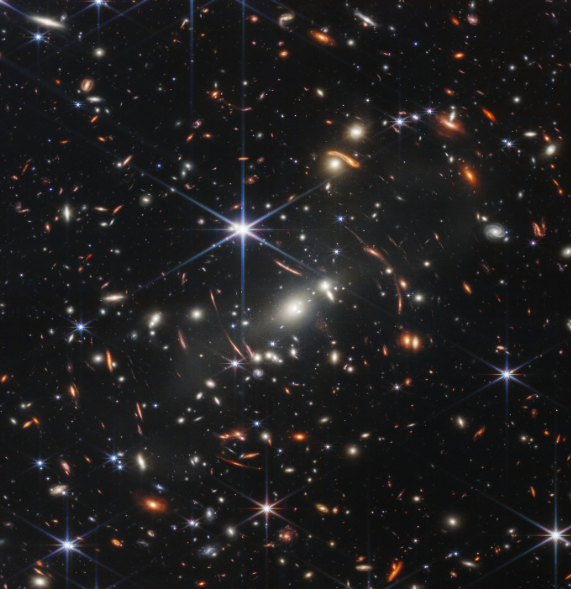NASA's James Webb Space Telescope (JWST) discovery in 2022 was massive, recording data from the early universe, including its finding of Maisie's galaxy.
Now, researchers have used these data and some instruments to learn more about Maisie's galaxy, getting more information about its age and joining the ranks of the oldest galaxies in space.
It is known that Maisie's galaxy was named after the University of Texas at Austin team's lead daughter, astronomer Steven Finkelstein, saying it was discovered during the girl's birthday.

Maisie's Galaxy Is One of the Oldest
Steven Finkelstein's team studied JWST's famed discovery last year that centers on Maisie's galaxy. Now, they have determined that it is one of the oldest galaxies ever recorded in history. Its study is now available to read via the pre-publishing platform, arXiv, awaiting publication in a peer-reviewed journal.
In this study, the researchers were able to pinpoint its creation. It was initially claimed it was 290 billion years after the Big Bang. However, with the help of more advanced instruments, they clarified that it was 100 billion years older than that.
This galaxy was also the first to be spectroscopically confirmed via the JWST's Near InfraRed Spectrograph (NIRSpec), as conducted by the Cosmic Evolution Early Release Science Survey (CEERS).
How Old Is Maisie's Galaxy?
The study has revealed that Maisie's galaxy is now 13.4 billion years old, and despite the old age, this is not the oldest that NASA recorded. It is because there is a record holder called JADES-GS-z13-0, the oldest-known system that is 70 million years older than Maisie's, according to BBC.
Maisie's Galaxy
During James Webb Space Telescope's early days in space exploration, it was able to survey a massive part of the universe. This powerful instrument takes data from various unknown entities that were never before seen.
Through its sheer power and capabilities, the JWST was able to capture a "treasure trove" of distant galaxies, including Maisie's galaxy.
It was one of the most iconic findings of JWST, alongside different stars and systems previously discovered, but not with great detail as the telescope brought us.
It also shared the largest image of the universe, which was possible due to its sensors, mirrors, and cameras, with as many as 690 individual frames.
However, studies on different parts of this discovery did not stop there, as teams from various universities, groups, and organizations have taken the massive data from JWST for further information.
It includes the famed Maisie's galaxy, considered one of the oldest galaxies, aged 13.4 billion years old, that brought wonders for all to enjoy.
Related Article : NASA James Webb Successor? Thin-Lensed Design to Bring More Powerful Tech with Diffractive Lenses





